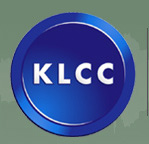Women are Missing in Eugene's Tech Community

September 9, 2013
By Lucy Ohlsen
Lots of people who work in technology are finding jobs in Eeugene. But, most of the high-level 'coders' and developers are male. Women in the local community are always unique and in high demand.
Imagine being 22, freshly graduated from college, and in a brand new city. Then, imagine being able to say
"This is pretty much my dream job"
That's Angela Churchill.
"I'm application developer at Feynman group"
Churchill is the only female that works on the coding - the back-end, computer language side of the web design and development firm. She's got skills
"PHP, C-Sharp, very confident in cold fusion as well, javascript"
But, Churchill's also got something else going for her. Her gender. Since lots of tech companies recognize that a gender imbalance is a potential threat to their business success, it's common to be pretty excited about a female applicant.
"If we ever see a resume from a woman for engineering, we always talk to that person, regardless of whether we're sure if it's a fit."
Sara Garcia is the human resources officer for Pipeworks, a gaming company with an office in downtown Eugene.
"There are three women that work here out of the almost fifty people that we have."
Garcia includes herself and the office administrator in that count. The only woman that actually works *behind the games is their 'user interface' artist.
"The guys are always joking with us. 'Hey can we share your restroom because it doesn't get as much traffic?'"
But, Garcia says the guys genuinely want more women around. They develop 'family friendly' games – like Dancing with the Stars - so a female perspective is very wanted. It's just that there doesn't seem to be many coding women out there.
About 20% of programmers nationally are women.
Palo Alto Software in Eugene claims a quarter of their engineers are women. Lara Fields is a programmer, and a lead developer.
“I don’t see the blatant sexism that existed when I was younger and when I was first starting college.”
At California Polytechnic institute, Fields was the lone female in most of her classes. She says her instructors often discounted her opinions.
"The guys would all be loud and forceful with their opinions. And I wanted mine to be heard, so I was loud and forceful with mine too."
Fields is more concerned that today, girls who have a “creative spark” are shuttled away from engineering.
“People know how to support a girl who’s already showing interest, but don’t really know how to guide girls or women when they’re not already raising their hand and saying ‘I wanna use technology’”
Kiki Prottsman has the exact same shade of bright red hair as Fields, and she's also a female coder. She runs Thinkersmith, which is aimed at getting girls and young people excited about programming.
“I think a lot of it has to do with the perception of computer science as not being helpful, as not being something you do for fun.”
Fields and Prottsman agree that being a coder is much more expressive and artistic than most think.
“There are some technical aspects to it, but it’s a very creative, free-thinking process.”
Fields says she’s happy to be a role model for girls interested in tech, because she’s just being herself.
“I’m loud and I’m funny and I have bright red hair and I try to be happy. I try to exhibit the fact that technology is fun and I like being in it. I like my job every day.”
It’s hard to predict what’s going to happen with the coding gender gap. For now, there are very few women in the “talent” pool. The number of women graduating in computer science from the U of O hovers around 15 percent. But, Prottsman says that number used to be lower.
"People are starting to see 'geek' as a little bit more of a good thing. It means probability of being successful. Having some money. Job security. I think people are starting to wear it as a little bit more of a badge now."
People in Eugene’s Silicon Shire are eager for more women to join the tech sector. And with figures like Prottsman and Fields to show that “Girls Rock!” the gap might get smaller soon.
|


